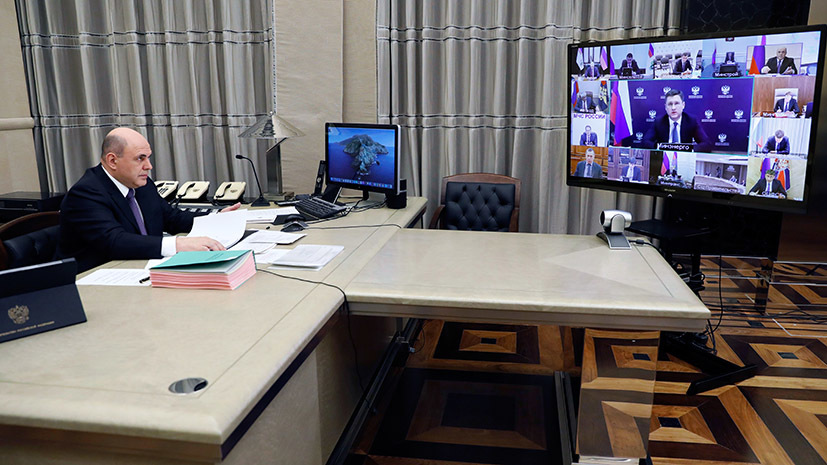The Russian government approved a list of sectors of the economy most affected by the coronavirus. The corresponding document is published on the website of the Cabinet.
According to authorities, the consequences of the pandemic hit the road and air transportation, catering, hotel and tourism, entertainment and leisure. The government also included non-governmental educational institutions, organizations from the sphere of culture and sports, beauty salons and hairdressers, enterprises that do laundry, dry cleaning, repairs and other household services.
“The first victims were transportation and tourism. These industries began to feel the negative effects of the epidemic in China back in January-February. Later, they were further affected by the closure of borders and the restriction of air travel. Leisure organizations and sports centers and halls suffered from a decrease in traffic in March, when it became clear that coronavirus was beginning to develop in Russia as well, ”Pavel Sigal, First Vice President of the All-Russian Public Organization of Small and Medium Enterprises, told RT.
According to him, quarantine measures and the introduction of a regime of self-isolation led to the suspension of work or the closure of theaters, cinema, catering, as well as small and medium-sized businesses. According to Segal, a sharp decline in demand was reflected in almost all private companies, and organizations began to suffer losses.
The expert’s words confirm the data of the analytical agency IHS Markit. According to experts, in March the index of business activity in the Russian services sector dropped from 52 to 37.1 points. The rate of decline was the largest since 2009.
Traditionally, the PMI reflects the real state of a particular industry. A value above 50 points indicates a positive economic situation, below 50 points - the stagnation of the sector.
“Demand for Russian services fell at the fastest pace after the financial crisis, as domestic and foreign customers reduced the number of orders placed. At the aggregate level, private sector production fell at the fastest pace in more than 11 years, and I quarter ended on a negative note, ”said IHS Markit economist Shian Jones.
Helping hand
At the same time, state support measures should provide financial assistance to Russian business and partially compensate for the loss of demand. About this RT told RT the chief analyst of TeleTrade Mark Goichmann.
“In conditions of mass self-isolation, customers are closing or losing industry revenues associated with transportation and final provision of goods and services to the population. Support measures to some extent allow such enterprises to ease the financial burden in the most difficult period, ”the expert noted.
Recall, on March 25, Vladimir Putin ordered a six-month deferment on all taxes except VAT for small and medium enterprises (SMEs), as well as business loans for entrepreneurs. In addition, the president proposed on a long-term basis to reduce the size of insurance premiums for small and medium-sized businesses from 30 to 15%. According to the head of state, such a decision should stimulate employers to increase salaries for employees.
- April 2, 2020. Chairman of the Government of the Russian Federation Mikhail Mishustin holds a meeting of the Government of the Russian Federation in a videoconference mode at the Government House.
- © Dmitry Astakhov / RIA News
In addition, on April 6, the government identified measures to ensure the sustainable development of the economy in connection with the spread of coronavirus. So, the Cabinet of Ministers adopted a resolution on a half-year deferment of payment of income tax for SME organizations, a single agricultural tax, as well as a fee paid in connection with the simplified tax system for 2019.
At the same time, the deadline for the payment of personal income tax for individual entrepreneurs is postponed for three months. The changes concern the sectors most affected by the epidemic. The government also extended the deadline for submitting value added tax returns until May 15, 2020, as well as the deadlines for paying social insurance. In addition, on May 31, 2020, field tax audits cease.
Moreover, from April 8, large Russian banks can begin to issue interest-free loans to small and medium-sized enterprises to support employment and pay salaries to employees. For these purposes, the Central Bank plans to allocate 150 billion rubles. About this writes TASS, citing a source in the secretariat of the First Deputy Prime Minister of Russia Andrei Belousov.
“The companies have a huge amount of running costs, which objectively have no money, and not through the fault of the business, but because of external circumstances. In such circumstances, direct subsidies, subsidies to compensate for the loss of sales, or at least long-term loans at low or zero rates — for making current salary and rental payments, are needed, ”says Mark Goichman.
Moreover, in case of deterioration of the situation in the sphere of small and medium-sized businesses, the authorities may decide on additional support measures. About this in an interview with RT said the deputy head of the information and analytical center "Alpari" Natalia Milchakova.
“Effective measures would be the cancellation of tax debt and the granting of damage to the affected enterprises with a lease delay. Moreover, the restructuring of debt to banks would also help the business, with the ability to repay interest unpaid during the period of self-isolation for a long time without fines and penalties, ”said Milchakova.

